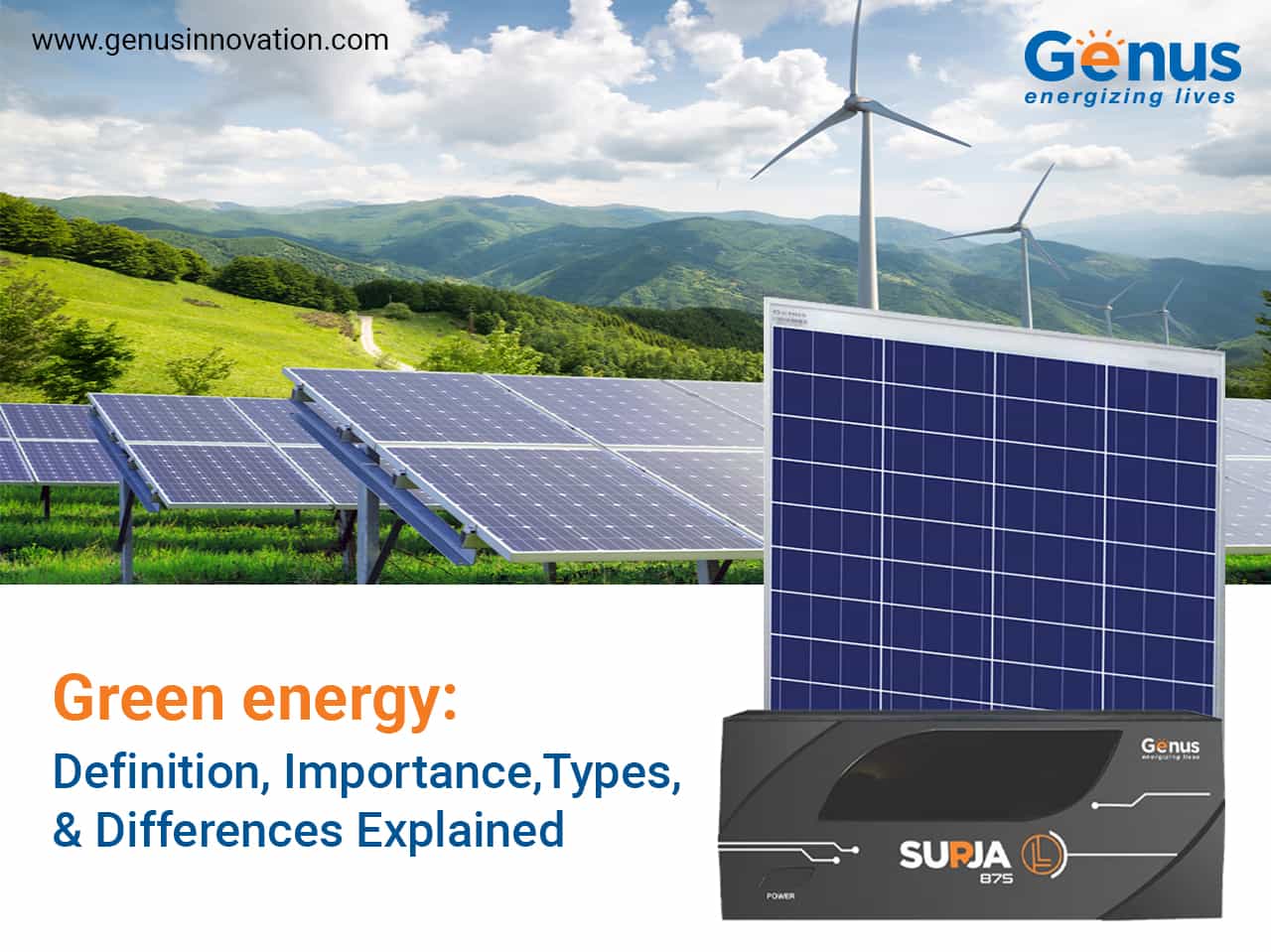What is Green Energy?
Green energy, also known as renewable or clean energy, refers to power derived from natural resources that are replenished continuously. These sources include sunlight, wind, water, and organic materials. Unlike fossil fuels, green energy does not produce harmful emissions, making it a sustainable and environmentally friendly option for energy consumption.
At Genus Innovation, we believe in the power of green energy to transform the way we live and work. Our solar products are designed to help homes and businesses reduce their carbon footprint while enjoying reliable and cost-effective energy solutions. By harnessing the sun’s power, we support a cleaner future for everyone.

How Does Green Energy Help the Environment?
Green energy plays a crucial role in protecting our planet. Here are some key benefits:
- It reduces reliance on fossil fuels, which are major contributors to air pollution and climate change. Instead, it uses renewable sources like wind, solar, and water, which are cleaner and more sustainable.
- Even when considering the entire life cycle of green energy systems, they emit significantly fewer greenhouse gases compared to traditional energy sources. This helps mitigate global warming and environmental degradation.
- Green energy is often more stable and cost-effective because it relies on local resources. It is less affected by geopolitical issues, supply chain disruptions, or price volatility, making it a reliable choice for long-term energy planning.
- It creates jobs and stimulates economic growth. For example, in 2018 alone, the renewable energy sector created over 11 million jobs worldwide (source: TWI Global).
- It enhances energy security by decentralizing power generation. This means less dependence on centralized grids and greater resilience against extreme weather events and other disruptions.
- Finally, green energy is accessible and affordable for people around the world, helping to bridge the energy gap and promote sustainable development.
What Are the Different Types of Green Energy?
There are several types of green energy, each with its own unique advantages and applications:
1. Solar Energy
Solar energy comes directly from the sun. Photovoltaic (PV) panels convert sunlight into electricity using the photoelectric effect. This is one of the most widely used forms of green energy, especially for residential and commercial use. A Genus solar system can help you save on energy costs and reduce your environmental impact.
2. Wind Energy
Wind energy is generated by wind turbines that convert the kinetic energy of wind into electricity. It's a clean and abundant resource, especially in areas with consistent wind patterns. Genus offers solar tubular batteries that provide long-lasting power backup, ensuring uninterrupted energy even during outages.
3. Hydroelectric Energy
Hydroelectric power is produced by capturing the energy of flowing or falling water. Dams and reservoirs are commonly used to store and control the flow of water. This form of energy is highly efficient and has been used for decades to generate electricity sustainably.
4. Biogas
Biogas is produced from organic waste through anaerobic digestion. It can be used for cooking, heating, and generating electricity. The process also results in nutrient-rich fertilizer that can be used for agriculture, making it a valuable resource for both energy and farming.
5. Biomass
Biomass energy comes from plant and animal matter. While burning biomass releases some carbon dioxide, the overall emissions are much lower than those from fossil fuels. It’s a versatile source of energy that can be used in various sectors, including industry and transportation.
Is There a Difference Between Green Energy and Renewable Energy?
While the terms "green energy" and "renewable energy" are often used interchangeably, there is a subtle distinction. Renewable energy refers to any energy source that is naturally replenished, such as solar, wind, and hydropower. Green energy, on the other hand, specifically refers to renewable energy sources that have minimal environmental impact and offer additional ecological benefits.
In short, all green energy is renewable, but not all renewable energy is considered green. For instance, some large-scale hydro projects may have negative environmental effects, so they might not be classified as "green." At Genus Innovation, we focus on eco-friendly and sustainable energy solutions that align with the principles of green energy.
With our range of solar inverters and batteries, we ensure that your home or business can enjoy long-term, reliable, and clean energy. Whether you're looking to reduce your electricity bill or contribute to a healthier planet, Genus Innovation is here to help. Connect with us today and take the first step toward a greener future.
PC Solar Panel
Jiangsu Zhuohong New Materials Co.,Ltd , https://www.pcban88.com